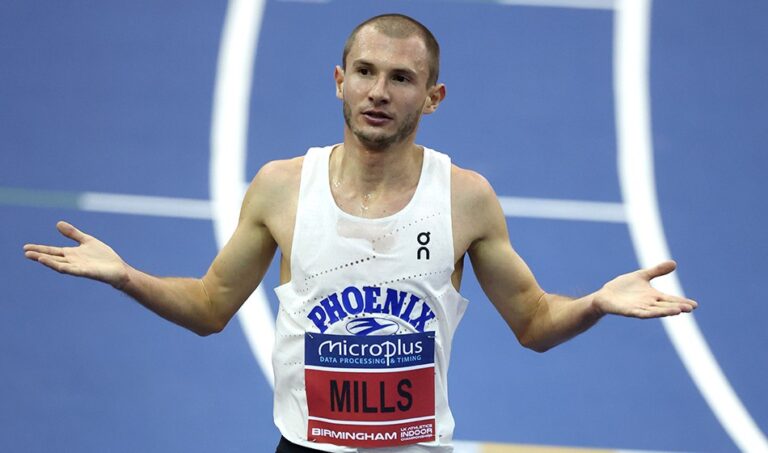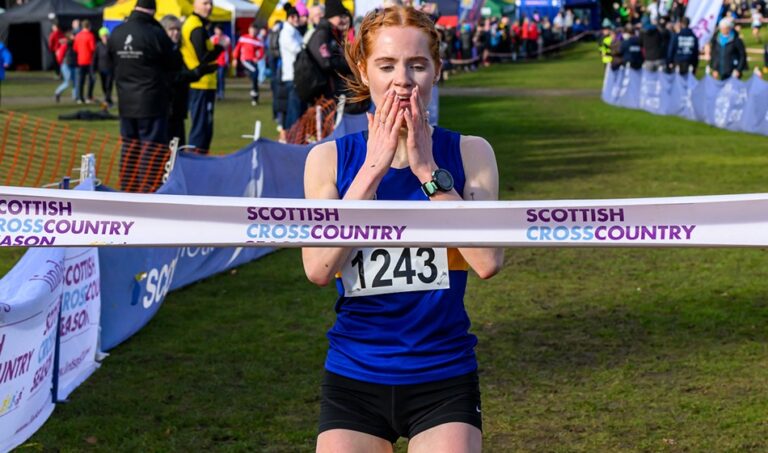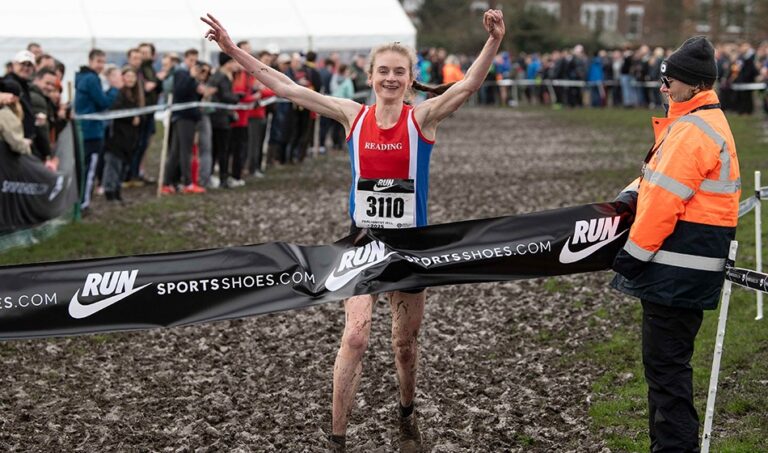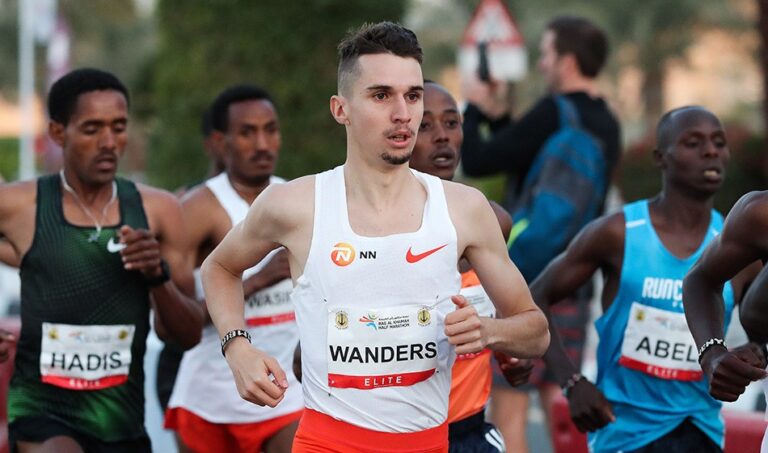
Cole Hocker reigns supreme in Paris ahead of Josh Kerr and Yared Nuguse as Jakob Ingebrigtsen is only fourth. But what next for these supermilers?
Olympic epic final
Bold Ingebrigtsen goes down fighting
In finishing fourth, Jakob Ingebrigsten left the track after the men’s 1500m at the Paris Olympics empty handed. But he gained plenty of new admirers for his racing style and sportsmanship.
After being out-kicked in three global 1500m finals – by Samuel Tefera in the 2022 World Indoors and Jake Wightman and Josh Kerr at the 2022 and 2023 outdoor world championships – he felt he had to run the sting out of his rivals’ finish.
The Norwegian blasted through the first 400m in a sizzling 54.8 and 800m in 1:51.5. There were reports that this is faster than Hicham El Guerrouj’s world record pace from his still-standing 3:26.00 mark set in 1998. Not quite. I was there in Rome that night when the Moroccan went through 400m in an even swifter 54.3 (his pacemaker ran 53.6) and 800m in 1:50.7 (pacemaker 1:50.5) before passing 1200m in 2:46.4 compared to Ingebrigtsen’s 2:47.3 in Paris.
It was a gallant defence of an Olympic title. The 23-year-old put his rivals to the test and they rose to the challenge. As Kerr predicted, it was “vicious and hard”.
Cole Hocker (Getty)
Magnanimous in defeat
In boxing we often see two fighters trash talking each other with venom before later heaping gushing praise and respect on their rival straight after the battle.
Tuesday night in Paris was similar with Ingebrigtsen writing a gracious and magnanimous post on Instagram. In a reference to his infamous ‘the next guy’ quote from last year, he said: “Today, Cole Hocker, Yared Nuguse and Josh Kerr outsmarted me. They were ‘the best guys’ when it really mattered and I want to congratulate them all on a great performance.”
Shades of Beyer in Prague
There have been plenty of middle-distance upsets over the years. Peter Rono winning the Seoul Olympic 1500m springs to mind, or Noah Ngeny out-kicking Hicham El Guerrouj at Sydney 2000.
But not since Olaf Beyer out-sprinted Steve Ovett and Seb Coe at the 1978 European Championships in Prague have we seen such a high-profile double act taken down by an unheralded outsider.
On that occasion Coe took the race out with an unprecedented sub-50-second first lap with Ovett chasing and Beyer holding back slightly before surging through to win. It must be added, though, that Beyer was part of the now discredited GDR system.

Olaf Beyer (Mark Shearman)
Kerb-crawling isn’t always bad
Hug the kerb and remain patient, because gaps almost always appear. It seems like a risky strategy, but it is amazing how often a runner who appears boxed with 100m to go is able to squeeze through on the inside.
Hocker’s first attempt to burst through on the inside of Ingebrigtsen with 120m to go didn’t work but the gap finally opened for him and he shot through with 60m to go. Will future generations of middle-distance runners learn to hold their line when they are leading instead of drifting out?
Of course it doesn’t always go to plan, though, as Kerr found out when he tried to come through on the inside in the UK Champs 800m final and then tripped with Elliot Giles.

Elliot Giles and Josh Kerr fall (Getty)
Mixed feelings for Kerr
“Bittersweet” is how Kerr describes upgrading his Olympic bronze from Tokyo to silver in Paris. Yet maybe it was even moreso bittersweet to beat Ingebrigtsen but lose the race. Tactically, Kerr did little wrong either. He was simply out-gunned by a stronger finisher Paris.
Where were the Africans?
Brian Komen was in second place though 400m and 800m but wound up 12th and last, whereas fellow Kenyan Timothy Cheruiyot was still in second place with 300m to go but imploded in the last 250m, falling back to 11th. The duo were the only African athletes in the race, too.

Cole Hocker wins (Getty)
To be a great miler, you must run a great 5000m
Endurance matters. Ingebrigtsen has acted as a catalyst in recent years for runners to focus on mileage and lengthy tempo running workouts.
At times it feels Henrik Ingebrigtsen not only coaches Jakob with his ‘double threshold system’ but also the majority of fellow elite and borderline international runners around the entire world who try to copy the formula.
There are multiple rounds in major championships and we rarely see slow races anymore, so runners like Hocker know they have to focus on their stamina.
With this in mind, since 2020 Hocker has improved his 5000m best each year from 13:32.95 to 13:18.95 to 13:08.55 to 12:58.82. He’s also raced plenty of times at 3000m or two miles, clocking 7:35.35 for the former and 8:05.70 for the latter.
Much of his training is simply steady mileage at altitude, too. So when you add his blistering kick finish (his 800m best is 1:45.63) to the equation then you have an athlete who has a perfect blend of speed and endurance and able to capture an Olympic 1500m crown.

1500m podium (Getty)
The divine ponytail mark II
Ingebrigtsen has probably been the biggest role model for young middle-distance runners in recent years. Since winning the world title, plenty of runners have enjoyed mimicking Kerr’s “Terminator look”, too. But now Hocker is the champion will he become the big role model that young runners aspire to?
If so, they will have to start growing their ponytails.
In 1998, the Stade de France was graced by arguably the most famous sporting ponytail of all when Roberto Baggio led Italy against France in a FIFA World Cup quarter-final. The “divine ponytail”, as Baggio was known, lost that day, however, whereas Hocker left the Stade de France this week as a winner.
No more, Mo
Almost lost in the raft of fast times was the fact Mo Farah’s British record of 3:28.81 from Monaco 2013 has finally fallen. At last, the record is now back in the hands of a bona fide miler with Kerr clocking 3:27.79.

(Getty)
Ingebrigtsen’s next move?
Might we have seen the last of Ingebrigtsen at 1500m? After another championship defeat there is a theory now that he might be tempted to step up to 5000m more regularly and even 10,000m and beyond.
I have a feeling he may persist with 1500m and the mile for a little longer, though. There is unfinished business with El Guerrouj’s world records within reach. Milers are able to race more regularly, too. Plus I have a feeling he will want to go out on a high.
Kerr: “I can’t see Ingebrigtsen running another Olympic 1500m cycle”
Imagine a rematch at the Tokyo World Championships next year between Hocker, Ingebrigtsen, Kerr and Yared Nuguse who, don’t forget, was only 15 hundredths of a second behind Hocker, not to mention rising stars Niels Laros and Hobbs Kessler together with the returning Jake Wightman.
It is a mouthwatering thought. But first, Ingebrigtsen goes again in Saturday’s Olympic 5000m final.
Check out our daily Paris 2024 podcast…
Gabby Thomas leads by example in Olympic women’s 200m






